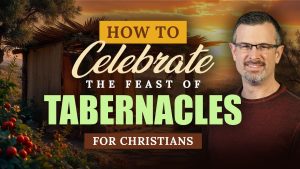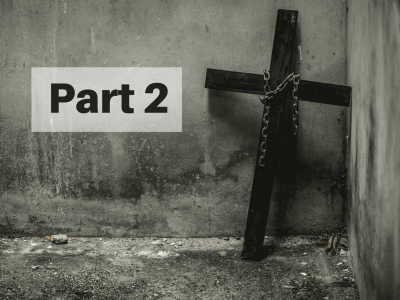How to Celebrate Feast of Tabernacles
Discovering the Feast of Tabernacles
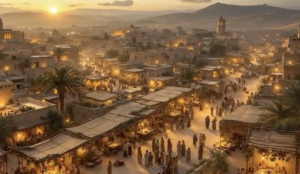 Did you know that the Bible says all nations will one day celebrate the Feast of Tabernacles in the coming Kingdom? Did you know that Jesus Himself was born during this very feast—when God literally “tabernacled” among us (John 1:14)? Sukkot, also called the Feast of Tabernacles or the Festival of Booths, is one of the most joyful and prophetic celebrations in all of Scripture. It is the festival of ingathering, the season of our joy, and a prophetic picture of God dwelling with His people forever.
Did you know that the Bible says all nations will one day celebrate the Feast of Tabernacles in the coming Kingdom? Did you know that Jesus Himself was born during this very feast—when God literally “tabernacled” among us (John 1:14)? Sukkot, also called the Feast of Tabernacles or the Festival of Booths, is one of the most joyful and prophetic celebrations in all of Scripture. It is the festival of ingathering, the season of our joy, and a prophetic picture of God dwelling with His people forever.
In this article, we’ll explore the meaning of Sukkot, its biblical foundation, prophetic significance, and practical ways you and your family can celebrate this incredible feast today.
The Biblical Roots of Sukkot
Sukkot is the seventh feast on God’s calendar (Leviticus 23:33–43). It comes after Passover, Unleavened Bread, First Fruits, Pentecost (Shavuot), Trumpets (Yom Teruah), and Yom Kippur (Day of Atonement).
- The spring feasts foreshadow Messiah’s first coming:
- Passover – Jesus’ death
- Unleavened Bread – His burial
- First Fruits – His resurrection
- Shavuot (Pentecost) – The giving of the Holy Spirit
- The fall feasts point to His return:
- Feast of Trumpets – The return of the King
- Yom Kippur – The Day of Judgment
- Sukkot – The Marriage Supper of the Lamb, when God dwells with His bride forever
Sukkot lasts seven days plus a sacred “eighth day” (Shemini Atzeret). In ancient Israel, families built sukkahs—temporary shelters made of branches—to remember the wilderness journey when God provided for His people. It was also the Feast of Ingathering, celebrating the year’s harvest.
Names and Meanings
Throughout Scripture, Sukkot has several names, each revealing its significance:
- Feast of Tabernacles / Booths (Sukkot) – Remembering God’s presence in the wilderness.
- Feast of Ingathering – A harvest festival of thanksgiving.
- The Season of Our Joy – Celebrating God’s provision and the future wedding banquet of the Messiah.
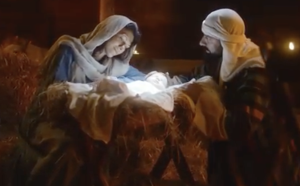 For Christians, Sukkot holds special meaning because it points directly to the birth of Jesus (Yeshua). He was not born on December 25, a date linked to pagan solstice festivals, but during Sukkot—the time when “the Word became flesh and tabernacled among us” (John 1:14).
For Christians, Sukkot holds special meaning because it points directly to the birth of Jesus (Yeshua). He was not born on December 25, a date linked to pagan solstice festivals, but during Sukkot—the time when “the Word became flesh and tabernacled among us” (John 1:14).
Prophetic Significance
Sukkot is not just a historical festival—it’s a rehearsal for the future.
- The Wedding Feast: Revelation 19 describes the Marriage Supper of the Lamb, which Jewish tradition links to Sukkot.
- The Millennium: Zechariah 14:16–19 prophesies that all nations will celebrate Sukkot in the Messianic Kingdom. Those who refuse will have no rain.
- God’s Presence Forever: Sukkot foreshadows the New Jerusalem, when God will dwell (tabernacle) with His people eternally.
In other words, if we’re going to celebrate it in the future, why not start now?
How to Celebrate Sukkot Today
You don’t need to live in Israel or have Jewish heritage to celebrate Sukkot. God’s feasts are for all His people (Leviticus 23:42–43). Here are some meaningful ways to celebrate:
1. Build a Sukkah (Booth)
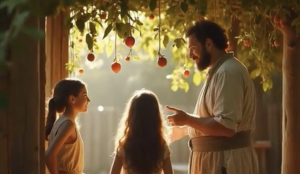 The sukkah is the heart of the celebration. It can be as simple as a tent or as elaborate as a decorated wooden structure. Traditionally:
The sukkah is the heart of the celebration. It can be as simple as a tent or as elaborate as a decorated wooden structure. Traditionally:
- Three walls enclosed, one side open.
- Roof of branches and greenery, open to the stars.
- Decorate with fruit, lanterns, and lights—symbols of God’s provision and the fruit of the Spirit.
Spend time in the sukkah eating meals, praying, reading Scripture, and even sleeping. It reminds us that our earthly homes are temporary, and we depend on God for everything.
2. Wave the Lulav and Etrog
Leviticus 23:40 commands God’s people to take branches and rejoice before Him. Traditionally, this is done with:
- Etrog (citron fruit): Symbol of the heart.
- Lulav (palm branch): Represents the spine.
- Myrtle: Represents the eyes.
- Willow: Represents the lips.
Together, they symbolize loving God with our whole being—heart, sight, speech, and strength. They are waved in all directions to declare God’s presence over the entire earth.
3. Invite Guests
Hospitality is central to Sukkot. Invite friends, neighbors, or those in need to share meals in your sukkah. Each guest represents the “ingathering” of souls and foreshadows the great wedding banquet of Messiah.
4. Celebrate Jesus’ Birth
Since Sukkot is the season of His birth, celebrate with a birthday party for Jesus. Share the gospel, give meaningful gifts, and rejoice that the Light of the World came to dwell among us.
5. Worship and Joyful Celebration
Sukkot is called the Season of Joy for a reason! Each evening, you can:
- Host worship nights.
- Light candles or lanterns to symbolize being the light of the world.
- Share testimonies and thank God for His provision.
- Play games and bond as a family—it’s about joy and connection.
6. Shemini Atzeret (The Eighth Day)
The final day includes the Water Libation Ceremony, recalling Jesus’ words in John 7:37–38: “If anyone thirsts, let him come to Me and drink.” You can symbolize this by pouring water into a bowl, dedicating yourselves to being poured out for others in the coming year.
Why Celebrate Sukkot?
Sukkot is more than a festival—it’s a prophetic rehearsal, a family celebration, and a spiritual reset. By celebrating:
- You honor God’s appointed times.
- You teach your children the richness of biblical faith.
- You connect with prophecy, preparing for the Kingdom to come.
- You rejoice in Christ’s birth, His presence, and His future return.
Sukkot reminds us that our lives on earth are temporary dwellings, but God’s Kingdom is eternal. It’s a week of joy, worship, family, and hope.
Final Encouragement
The Feast of Tabernacles is a beautiful, prophetic picture of God’s plan for His people. It’s a rehearsal for the wedding feast of the Lamb, a reminder of Jesus’ birth, and a celebration of God’s presence with us.
If you’ve never celebrated before, start simple: build a sukkah, invite friends, rejoice, and dedicate the week to God. Let it be a time of joy and renewal for you and your family. As Zechariah reminds us, one day all nations will celebrate this feast. Why not begin today?
“And the Word became flesh and tabernacled among us.” — John 1:14
Watch the full teaching here:
https://youtu.be/GtyDz2PiIhI


